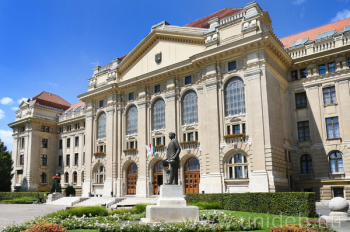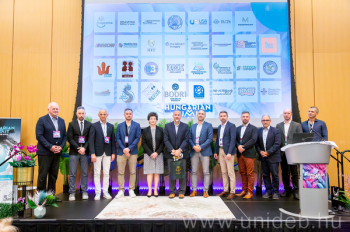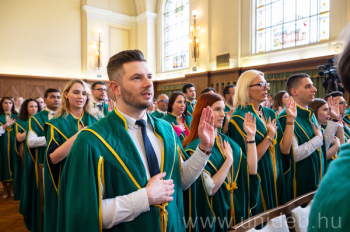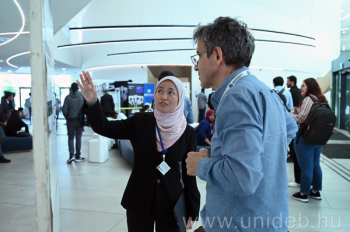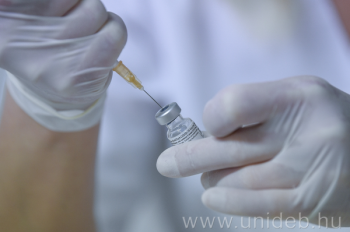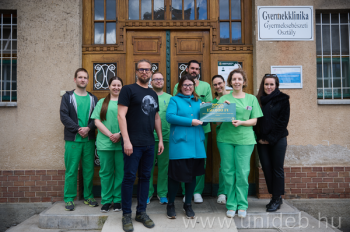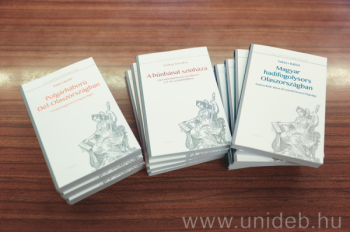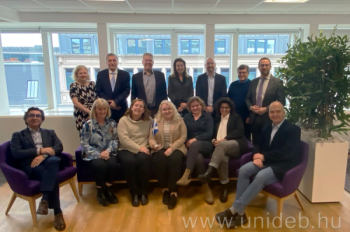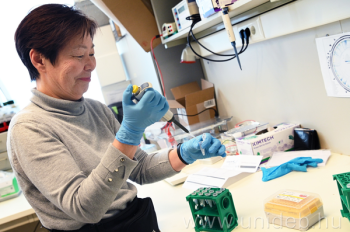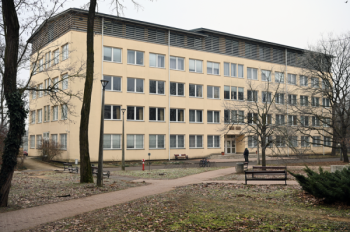From September, space professionals will be trained in English at the University of Debrecen. Prospective students will be able to learn about space medicine, space telemedicine, and space pharmacy and space nutrition, among other things, as part of the UniSpace programmed. The postgraduate specialization will start in September and applications are open until 12 August.
Hírek Science címkével
The University of Debrecen presented its educational, research and innovation development trends, good practices and international relations at the Hungarian Summit in Florida. The event was attended by Károly Pető, Deputy Rector General, Péter Nagy, President of the GTIDEA Scientific and Social Advisory Board, and Zalán Bács, for the Institute for Sports Science Coordination.
The University of Debrecen has held its traditional spring doctoral and honorary doctoral inauguration ceremony. At this event on Friday, as many as 130 new doctoral candidates in five different disciplines received their degrees, while titles of habilitated doctor, professor emeritus and emeritus advisor were also conferred. Helmut Flachenecker, Professor at the University of Würzburg in Germany, was awarded an honorary doctoral degree, while ecologist Csaba Aradi received a Pro Universitate award.
A conference organised by the International Student Union (ISU), an association of foreign students, was held on Thursday at the Learning Center: students enrolled in the English-language programmes of the Faculty of Science and Technology of the University of Debrecen (DE TTK) heard presentations on scientific work, the opportunities of TDK (Students’ Scientific Research) and the institution's talent management programmes.
Antibiotic-resistant bacteria and novel therapeutic options were discussed at the recent international online conference on Infectious Diseases in a One Health context. Organized by the One Health Institute of the Faculty of Health Sciences, the Faculty of Agricultural and Food Sciences and Environmental Management, the Institute of Metagenomics of the University of Debrecen, the Veterinary Medical Research Institute and the Centre for Ecological Research of the Hungarian Research Network, the objective of the event was to promote discussion and knowledge exchange.
DOTE Foundation for Pediatric Surgery will use the donations collected at the so-called wardrobe fairs held earlier this year to purchase medical equipment. The amount of the donation, worth HUF 150,000, was handed over by representatives of the organizers, Debrecen Reformed University Congregation and the University of Debrecen Talent Development Program (Debreceni Egyetem Tehetséggondozó Program -DETEP) at a “house-party” ceremony held in the Pediatric Surgery Pavilion on Monday.
Several new volumes have been added to the Italianistica Pannonica series of the Italian Studies Department of the Faculty of Humanities (FoH) of the University of Debrecen (UD). These three publications, which discuss common Italian-Hungarian historical events, were presented to the members of a select audience on Thursday at the Library of the Hungarian Institute of Literature and Cultural Studies.
Leading members of CARPE (Consortium on Applied Research and Professional Education) met in Brussels over the weekend. Representing the University of Debrecen, Deputy Rector for Research and Education László Csernoch and Scientific Director Zsolt Varga attended the meeting.
The partnership between the Faculty of Science and Technology of the University of Debrecen and the Almaty al-Farabi Kazak National University has reached yet another successful stage. For six months, a researcher from one of Kazakhstan's leading higher education institutions prepared DNA extraction and quality control of tissue samples of rare plants collected in Kazakhstan and brought back to the DE laboratory.
An internationally renowned professor is visiting the University of Debrecen. Florian Luca, Professor at the School of Maths, Wits University, Johannesburg, will spend three months as a visiting researcher at the Institute of Mathematics in autumn 2004.
